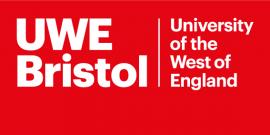Resourcing the Primary Curriculum
Examples of activities which use a variety of enquiry skills: could be used as part of an insett activity/in school training on incorporating all these enquiry types into the curriculum.
Battle of the Beaks
This practical activity explores beak adaptations in bird populations and looks at the way in which variation in beak shape is related to the available food sources within an environment.
Students simulate bird feeding by using a ‘beak’ to collect food and place it into a stomach. There are four different beak shapes and a range of different food types to choose from. Discussion points are provided to encourage evaluation of the scientific method, together with extension ideas. The activity can also be used to illustrate generalist versus specialist feeding strategies.
Education Pack: Seeds and Fruits - Adaptation *suitable for home learning*
Aimed at primary learners, this resource aims to develop an understanding of seed dispersal and the adaptation of bird beaks related to food choice. It is designed for use when visiting a wildlife area and links to the topic areas of plant life-cycles and interdependence and adaptation.
The materials, produced by OPAL (Open Air Laboratories), contain instructions on running the activities, a checklist of equipment required, and worksheets.
The activities are:
Squirrel hunt - look at how plants use animals and birds to help them disperse their seeds to grow more plants in new places.
Berry squishing - collect berries, identify them and explore the seeds different berries contain.
Best beak - make predictions about which beak will be the best shape for picking up different kinds of food and match the beak shape to food eaten
Living Processes and What Plants Need to Grow
This resource, aimed at primary level, contains many investigations, activities and games related to plants, looking at seeds and germination, how to grow plants and the factors which affect plant growth. Activities include exploring the inside of a seed before it germinates and investigating what plants need to grow, for example, water, light, soil and mineral salts. In other activities children design a seed, find out how strong plants are and how water travels through a plant.
There are also two games which help to reinforce understanding. Full teacher guidance, background knowledge, further ideas and all classroom worksheets are included.
Healthy Drinks and Tasty Toothpaste
These CIEC Promoting Science materials allow children to investigate tooth decay and the effectiveness of toothpaste.
This science investigation pack draws on the example of a toothpaste manufacturer who wants to develop an appealing toothpaste, that provides maximum protection against the effect of sugar in drinks.
Activities include:
• Understanding how sugary drinks can cause tooth decay
• The effects of acids on teeth
• How toothpaste works and investigating effectiveness
• Testing ingredients and making toothpaste
Teacher guidance and children's activity sheets are included
Making Shadow Puppets
In this cross curricular activity, children learn about light and shadows by creating shadow puppets which tell the story of a myth or legend. Teacher’s notes provide a step by step guide to creating the shadow puppets, showing how to create moving parts; it also shows how to set up a shadow theatre to tell the story using everyday materials.
A second activity explores how shadows are produced and how shadows change over the course of a day.
Growing Plants
The practical activities in this resource provide an introduction to plant growth through an investigative and problem solving approach. The experiments can be carried out in any order and integrated into an existing scheme of work.
The activities cover conditions for germination, types of soil, the structure of roots and shoots and the effects of overwatering, fungal attack and mildew.
Key Stage Three: Champion Chocolate
In this activity students learn how scientists, using experimental evidence have helped Cadbury's improve their chocolate. Curriculum links include change of state, crystals, particle theory and temperature.
Video clips of the cooling stage in chocolate manufacture and research at the Daresbury Laboratory set the scene for experimental work in school using chocolate.
Students are able to measure temperature, draw graphs, describe the change of state taking place and explain how scientific evidence can improve industrial processes.
This resource was produced by Science and Technology Facilities Council (STFC), a part of the Research Councils UK (RCUK) partnership of research councils
Selenia and the Crazy Football Game
Learn about the cooling down of liquids and thermal insulators in this colourful comic aimed at students in Key Stage Two. Written to promote enquiry skills in a context, it focuses on making predictions before carrying out an investigation on how quickly a hot liquid cools down.
In this episode, Selenia changes the properties of various materials to help a team in an unfair football match. She plays a trick on the manager by cooling his coffee down and wants to find a way of doing this without using magic so that she can trick her mum.
Teachers' notes provide a link from the comic to the investigation and include an explanation of insulation and the different methods of losing heat which are; conduction, convection, radiation and evaporation. They also provide curriculum links, extension opportunities, equipment list, planning sheet and printable flash cards showing predictions for cooling.
The comic, produced by the University of the West of England is part of a collection of science comics which aim to engage children with science and reading.
Do Try This at Home*suitable for home teaching*
This set of twelve colourful postcards provides hands on activities which link to the topics of electricity, sound, forces, and changes of state. Ideal for use in the classroom, the mini-investigations are fun to do and get children thinking about the concepts involved. They are also perfect for use in after school clubs and science weeks. Two cartoon characters, Marvin and Milo demonstrate the fun experiments, which are designed to appeal to primary age children. They include: Alka -Seltzer rockets, magic balloon, making a lava lamp, musical coat hanger, making a foil boat and many more.











